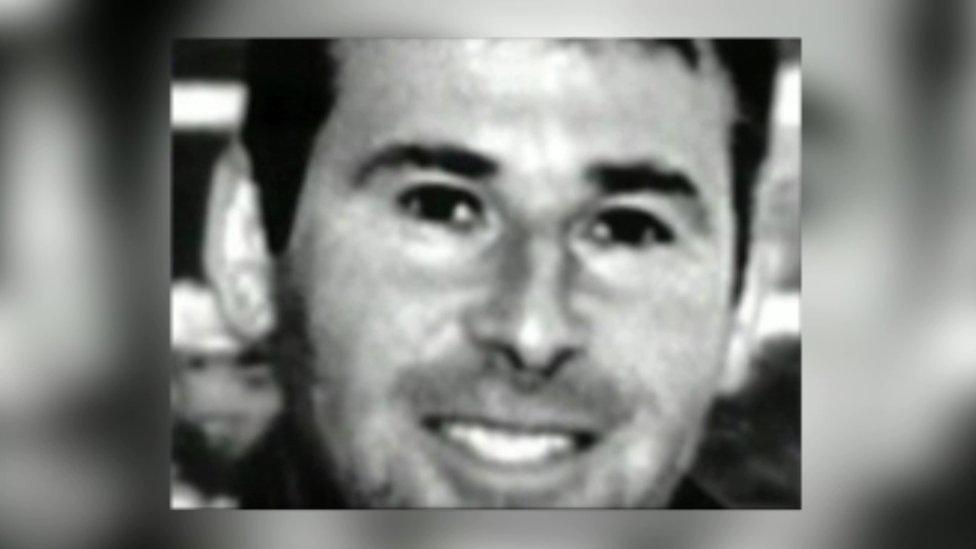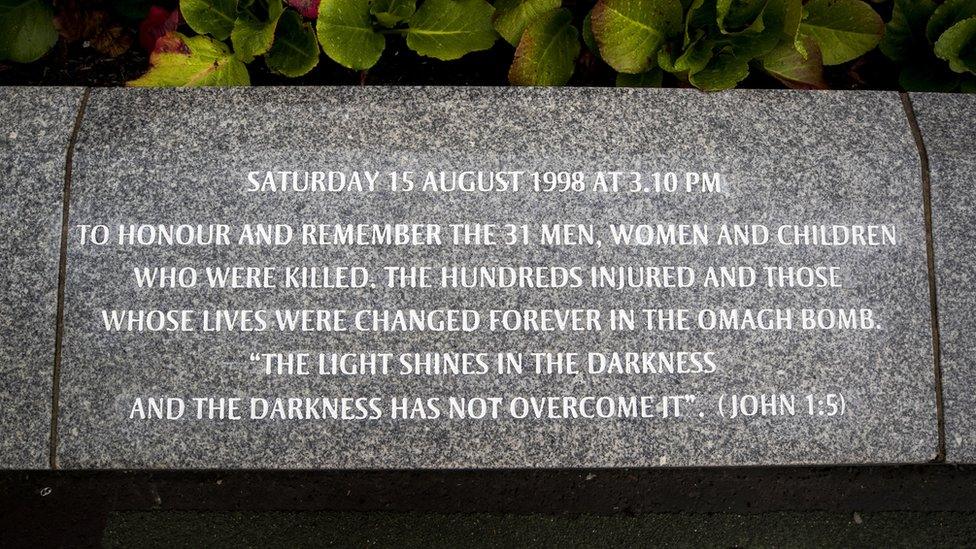Liam Campbell: Omagh suspect to be extradited to Lithuania over Real IRA weapons
- Published

Campbell is one of four men held responsible for the Omagh bombing
A man held liable for the Omagh bombing is to be extradited to Lithuania to face charges related to weapons smuggling for the Real IRA.
On Wednesday, the Irish Court of Appeal dismissed Liam Campbell's appeal against surrender.
Campbell, 58, has been battling extradition for more than 12 years.
He wanted the three-judge court to overturn a High Court decision surrendering him to Lithuanian prosecutors.
It is alleged he was involved in the smuggling of weapons in support of the Real IRA (RIRA) between the end of 2006 and early 2007.
He had argued that he could not be surrendered as the Lithuanian authorities had not made a decision to actually try him.
However, the Court of Appeal in Dublin found that there was an intention to put him on trial there.
Campbell was arrested in Upper Faughart, Dundalk, County Louth, on 2 December 2016, on the second European Arrest Warrant (EAW) issued by Lithuanian authorities to be endorsed by the High Court.
It was the third time Lithuanian authorities tried to obtain his surrender.
'Substantial number of firearms and explosives'
The EAW had sought Campbell in relation to three alleged offences: preparation of a crime, illegal possession of firearms, and terrorism.
The maximum sentence for the offence of terrorism is 20 years.
The warrant alleges that Campbell "made arrangements, while acting in an organised terrorist group, the Real Irish Republican Army (RIRA) to acquire a substantial number of firearms and explosives from Lithuania and smuggle them into Ireland".
It alleges that, at the end of 2006 to 2007, Campbell "made arrangements with Seamus McGreevy, Michael Campbell (his brother), Brendan McGuigan and other unidentified persons to travel to Lithuania for the purposes of acquiring firearms and explosives, including, automatic rifles, sniper guns, projectors, detonators, timers and trotyl [TNT]".
Campbell had previously spent four years in custody in Northern Ireland during a second attempt to extradite him but was released when he succeeded in his objection that to do so would be a breach of his rights.
In June 2020, the High Court in Dublin ordered Campbell's extradition to Lithuania but he appealed that decision to surrender him to the Irish Court of Appeal earlier this year.
His barrister said there was evidence that the Lithuanians had not made a decision to try his client but want him extradited so they can continue their investigation into the crime alleged against him, arguing that the court could refuse the request on that basis under the European Arrest Warrant Act 2003.
Appeal dismissed
He pointed to an affidavit from the Lithuanian authorities which, he said, "clearly indicates that a decision hasn't been made" as to whether to put Campbell on trial.
The affidavit, he said, indicated that any decision to prosecute is contingent on evidence yet to be gathered.
The Irish minister for justice's lawyer said that the courts had previously decided to take a "cosmopolitan" approach to what constitutes a decision to begin legal proceedings in circumstances where different European member states have different legal systems.
He added that the Lithuanian system requires the input of the accused person before an indictment can be brought but that the intention is to put Campbell on trial.
The judge, Mr Justice John Edwards, said that the court agreed with High Court Justice Aileen Donnelly, who had ordered his surrender, that Campbell had never presented evidence that no decision had been taken to charge or try him.
He quoted from her judgement delivered in the case last year, where she had noted that the criminal justice system in Lithuania was not similar to Ireland's.
"The evidence in the case … demonstrates an intention to put the respondent on trial as is indicated by the fact that there is a high probability that a bill of indictment will be lodged against him," she had found.
"The EAW has been issued with a view to putting him on trial for these matters, but Lithuanian law requires that he has an opportunity to present his case during the investigative stage," she added.
Justice Edwards said the Court of Appeal found no error on Justice Donnelly's part, and dismissed the appeal.
Related topics
- Published10 July 2020

- Published9 July 2020

- Published28 January
